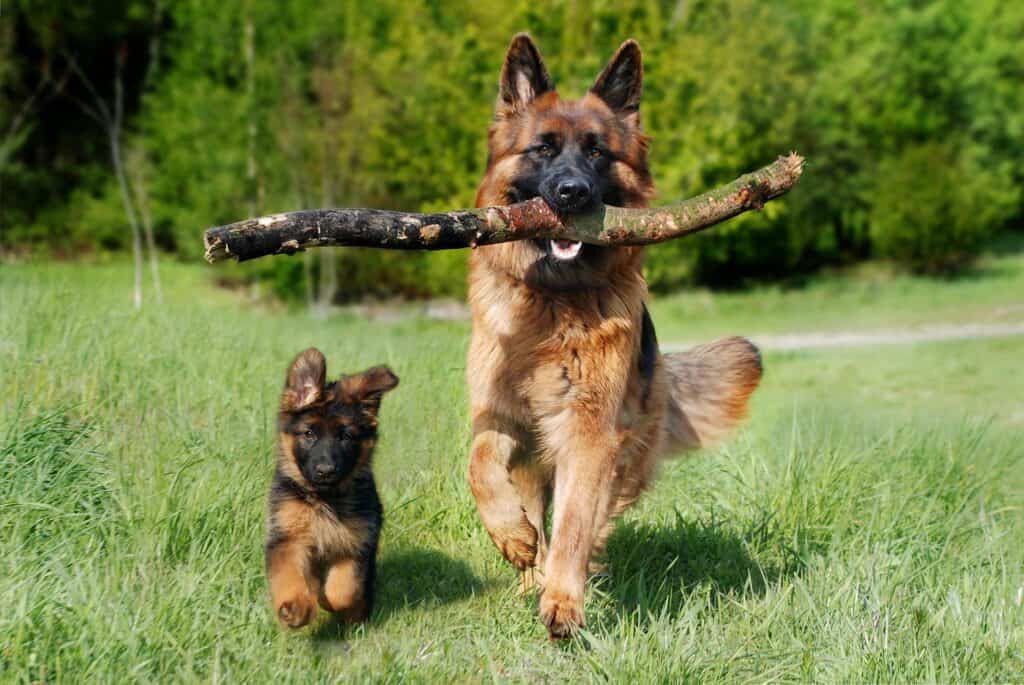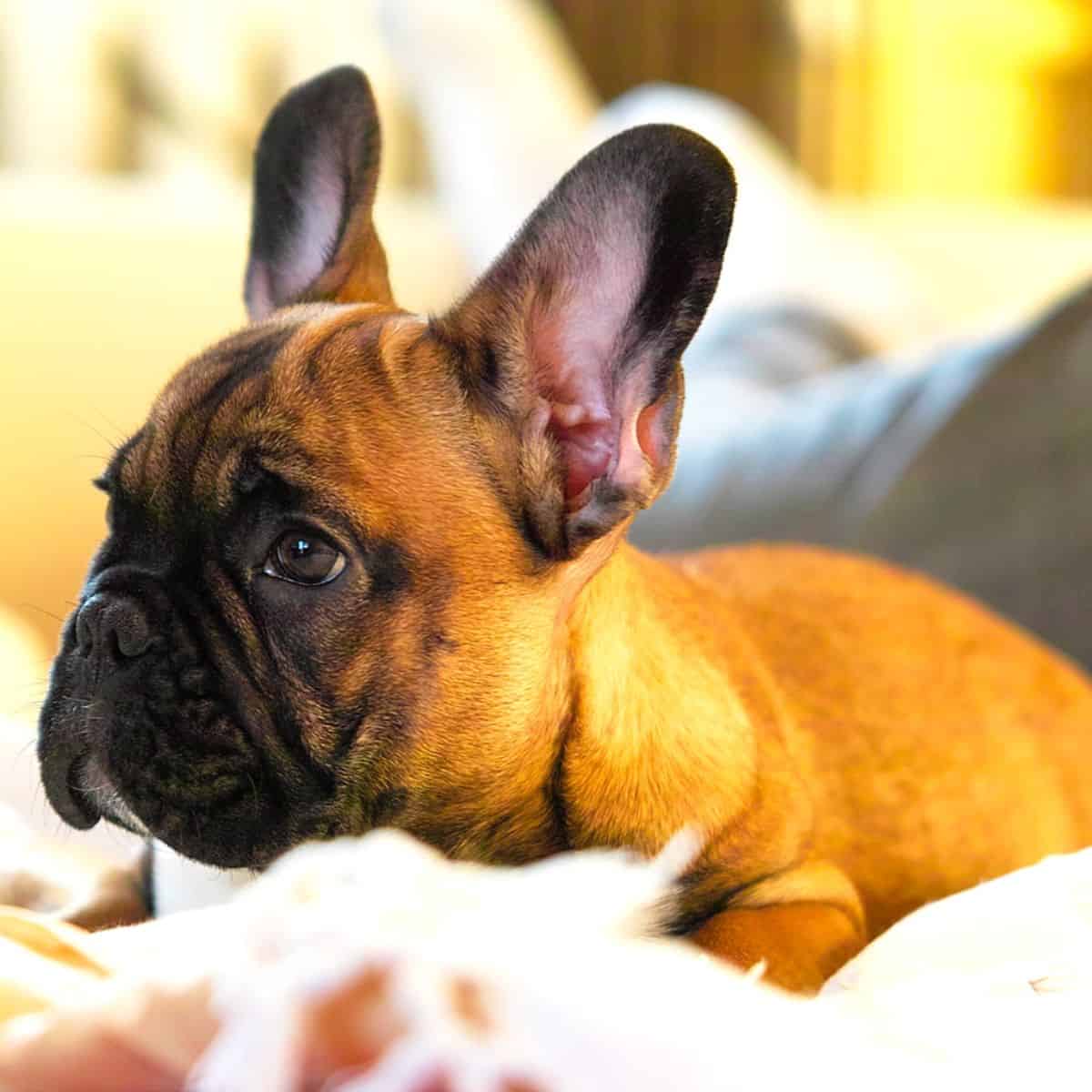
German Shepherd Dogs and Puppies

German Shepherd Dogs and Puppies
Looking for a German Shepherd Dog or puppy? Be sure to browse our dogs and puppies category! Read this article to find out everything you need to know about German Shepherd dogs and puppies. There are solid reasons why the German Shepherd Dog is one of the most well-liked dog breeds in the world. They are capable and intelligent working dogs. They are unsurpassed in their devotion and bravery. They are also incredibly versatile.
The breed is also known as an Alsatian. Despite being purebred, German Shepherds can still be found in shelters and breed-specific rescue organisations. So keep adoption in mind! If this breed is the one for you, don’t shop.
GSDs are excellent in almost everything they are trained to do, including being a faithful friend, a guide for the disabled, a member of the military or police, a herder, a search and rescue dog, a narcotics detector, and competitive obedience.
For a complete list of German Shepherd dogs and puppies characteristics and information, see below!
Information on German Shepherd Dogs and Puppies
The German Shepherd Dog, also known as the Alsatian in parts of Europe and Great Britain, ranks among the top 10 dog breeds in popularity in the United States and is arguably one of the most well-known breeds in the entire globe.
They owe a portion of their fame to a young puppy that Corporal Lee Duncan saved from a breeding facility in France that had been bombed and shot up during World War I. After the war, Duncan transported the pup back to Los Angeles, where he raised and trained him to become Rin Tin Tin, one of the most well-known canines in the entertainment industry.Rin Tin Tin continued to act in several films and, at the height of his fame, received 10,000 admirer letters each week.
Other than being a movie star, the German Shepherd has performed a variety of tasks, including herding livestock, guiding the blind, tracking down criminals, smelling out illegal substances, serving in the military, and visiting the sick.
Even now, the dog is regarded as a national hero. After the 9/11 terrorist attacks, German Shepherds served as the search and rescue canines that prowled through the rubble of the World Trade Center in search of survivors and to console the families and rescue personnel.
Although the German Shepherd embodies many of the best qualities of dogs, not everyone will like having one. Being a high-energy dog that was originally bred to herd flocks all day, they require a lot of activity and exercise. Without it, they’re more prone to exhibit boredom and annoyance through undesirable behaviours like barking and chewing.
The breed is also aloof and somewhat suspicious, making it a terrific watchdog but not the kind of family pet that will make visitors feel welcome. A German Shepherd may learn to cope with new people and settings, though, if you expose them to a wide variety of situations and people from the time they are puppies.
Depending on whether a puppy you’re adopting is descended from dogs that came from American or German breeders, you’ll receive a slightly different kind of German Shepherd. Generally speaking, American breeders frequently strive to produce dog show champions, and they breed more for that distinguishing German Shepherd appearance than for distinct German Shepherd abilities.
Fans claim that American-bred German Shepherds are calmer than German-bred German Shepherds, while detractors claim that these dogs lack some of the skills needed to perform conventional German Shepherd tasks and are more likely to experience behavioural issues like separation anxiety.
German breeders, on the other hand, breed their dogs to fit the breed’s traditional appearance as well as for their working prowess. The physical and mental standards the breed is known for must be met in a number of exams before a German Shepherd can be produced there. German Shepherd Dogs have a reputation for being highly driven and vivacious.
However, spending time with them is the only way to be certain of the kind of dog you’ll get. So before you even bring your new best buddy home, get over to the shelter and introduce yourself!
German Shepherd Dogs and Puppies Highlights
If you spend a lot of time away from home or frequently, the German Shepherd is not the breed for you. They may get bored or anxious when left alone, and they may exhibit their boredom or anxiety in ways you don’t enjoy, such barking, gnawing, or digging.
German Shepherds are intelligent and active canines. They must be kept occupied with work, play, and learning. Daily exercise is essential and should include both physical and mental activities like jogging and Frisbee as well as training sessions.
German Shepherds have a tendency to be distant and wary of new people. Expose your German Shepherd puppy to a variety of situations, people, and experiences if you want to develop a sociable and well-mannered dog. Beginning with puppy lessons, obedience training is crucial for socialising puppies and teaching them the fundamentals of good canine behaviour.
These dogs consistently shed. In actuality, they are known as “German shedders.” Buy a nice vacuum and give them a few weekly brushes. You’ll require it.
In addition to being an excellent method for potty training puppies, crate training also teaches them how to behave well when left alone with their owner. This is crucial for German Shepherds, who may experience separation anxiety or severe anxiety when left alone.
Even though they have a reputation for being excellent watchdogs, which they really are, German Shepherds should never be chained or tethered only for security purposes. No dog should since it causes resentment and hostility. While residing indoors with the family, the German Shepherd is happiest if they have access to a sizable, enclosed yard where they can let off some of their natural energy.
Size
Women stand 22 to 24 inches tall, while men stand 24 to 26 inches tall. weighs between 75 and 95 pounds.
German Shepherd Personality
The temperament of a German Shepherd is distant but not typically hostile. They are reticent dogs who take time to form relationships, but once they do, they are fiercely devoted. They are laid-back and personable around their family but may become fierce and protective when they feel threatened, making them excellent watchdogs.
This exceptionally sharp and teachable breed thrives on having a task to do, whatever it may be. The German Shepherd may be trained to do a wide range of tasks, including finding an avalanche victim and alerting a deaf person to a doorbell ring.
Being alone for extended periods of time is one thing they struggle with. They become bored and irritated without the companionship they require, exercise, and the opportunity to use their brains. German Shepherds who are neglected by their family and given insufficient exercise are more likely to display their pent-up energy through undesirable behaviours like barking and chewing.
The German Shepherd needs early socialization—exposure to a variety of people, sights, sounds, and experiences—when they are young, much like every other dog. In order to guarantee that your German Shepherd puppy develops into a well-rounded dog, socialisation is important.
More Pet Topics
German Shepherd Health
German Shepherds are generally in good health, but like all breeds, they are susceptible to some health issues. If you’re thinking about getting a German Shepherd, it’s vital to be aware of these diseases even though not all of them will affect your dog.
Hip dysplasia: The femur doesn’t fit tightly into the pelvic socket of the hip joint due to this heritable disorder. Hip dysplasia may or may not show any clinical symptoms. On one or both of their rear legs, some dogs are painful and lame. Arthritis may appear as the dog aged. The University of Pennsylvania Hip Improvement Program or the Orthopedic Foundation for Animals both provide X-ray screening for hip dysplasia. Hip dysplasia in dogs should prevent breeding.
Elbow dysplasia is a heritable disorder that affects large-breed dogs most frequently. The three bones that make up the dog’s elbow have three separate growth rates, which results in joint laxity. Painful lameness may result from this.
Degenerative Myelopathy: The spinal cord’s degenerative myelopathy is a progressive condition that affects the area of the cord that transmits commands to the brain about the rear legs. Dogs with DM display behaviours that suggest they are unable to use their hind legs appropriately. The illness worsens to the point where the dog is unable to walk. In the majority of cases, there is no treatment and the dog is euthanized. However, the illness can occasionally be brought on by a deficiency in vitamin E or vitamin-12. Vitamin supplements may help to stabilise the illness if this is the case.
Allergies: The allergies that some German Shepherds experience can range from contact allergies to food allergies. Dog allergy symptoms are comparable to human allergy symptoms. If your German Shepherd is frequently itching, licking their paws, or touching their face, assume an allergy and have your veterinarian examine them.
Care
German Shepherds are geared for action because they were originally raised to herd flocks all day. This indicates that they have a lot of energy that they must expend through regular exercise.
Expect difficulty if you leave them unattended for an extended amount of time without exercising. Inactivity and boredom cause behavioural issues, including as chewing, digging, and barking. The German Shepherd is in severe need of mental and physical activity (such as running or playing in the dog park) (training exercises like agility or obedience competitions).
German Shepherds bark like many other herding animals do. Barking isn’t always a problem, but if the dog is bored, it may be. Every German Shepherd should go through the “Quiet” command in their obedience training.
German Shepherds enjoy chewing, and their strong jaws can crush most objects. If they choose the wrong item to bite on, they risk hurting their teeth, ingesting something unpleasant, or even choking. Give your dog safe chew toys and bones so they may amuse themselves when you’re not playing with them to protect your things and your dog.
German shepherd coat and colour
The medium-length double coat of the German Shepherd, which was specifically bred to protect the dog from rain and snow and to resist picking up burrs and dirt, is ideal for the job because it was initially developed to herd flocks in tough regions.
The German Shepherd’s coat varieties are as varied as its colour. Longhaired German Shepherds do exist. The “ideal” German shepherd, however, has a double coat that is medium in length. The outer coat is thick with close-lying, straight hair that is occasionally wavy and wiry.
Shredding has no miracle cure, so we just have to accept that. But brushing two to three times a week will encourage more hair to exit the brush and not land on your furniture. A reliable vacuum cleaner is also helpful.
Kids and other animals
German Shepherds make excellent companions for youngsters if they are well-trained and have spent a lot of time with kids, especially as puppies. Some even compare them to a cross between a babysitter and a police officer since they are both kind to and protective of the kids in their household.
However, because of its size, this dog could accidentally knock a toddler or young child. They are not overtly sociable with kids they don’t know, in keeping with their quiet character, but they are generally reliable.
If trained from a young age, the German Shepherd can also coexist happily with other dogs and animals. If an adult German Shepherd isn’t accustomed to getting along with other dogs or cats, introducing the dog to a home with other pets may be more challenging. If you purchased the adult German Shepherd from a rescue group, you might need to consult that organisation for assistance or pay a professional trainer to assist you.





